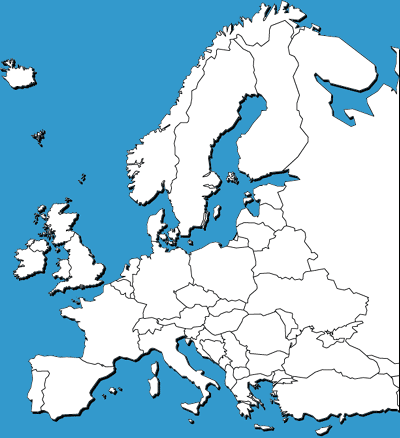Study released in Germany shows that Neanderthal genes live on in many humans
May 10, 2010
Q: Many people alive today possess some Neanderthal ancestry, according to a landmark scientific study. The early branch of the human family is named after the German valley where its remains were first discovered. Where is Germany?
Circle the area on this map

Q: The study of genetic evidence found evidence of some interbreeding between Neanderthals and modern human beings. Where do most scientists believe modern human beings originated?

A. Africa

B. Asia

C. Europe

D. Australia

Q: According to the Out of Africa theory, a small group of modern humans - perhaps just a few dozen - left the area of the modern nation of Eritrea for the area of modern Yemen about 60,000 years ago. What narrow body of water separates Africa and Asia at that point?

A. Aegean Sea

B. Red Sea

C. Mediterranean Sea

D. Baltic Sea

Q: Between 1 percent and 4 percent of the human genome of people on the world's largest landmass seems to come from Neanderthals. What is the largest landmass?

A. Africa

B. Asia

C. Europe

D. Eurasia

Q: The study's findings come from the analysis of DNA extracted from the bones of three different Neanderthals found in a cave in Croatia. Before it declared independence in 1991, Croatia was part of which nation?

A. Albania

B. Russia

C. Czechoslovakia

D. Yugoslavia

Answers for this quiz: Click here

